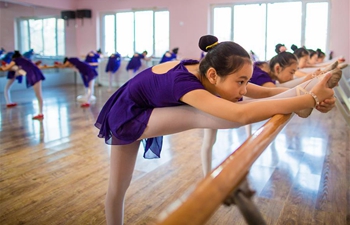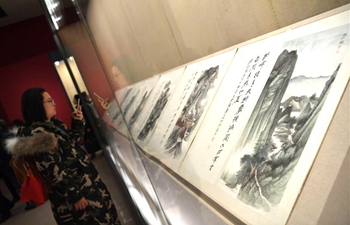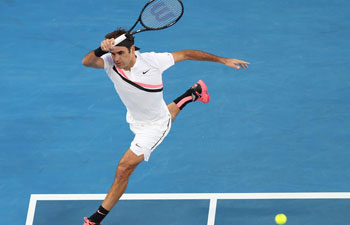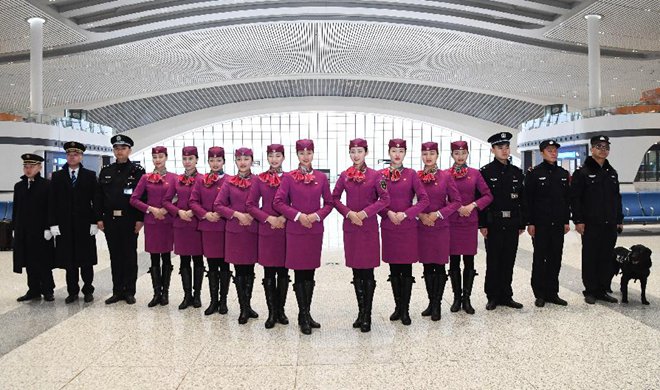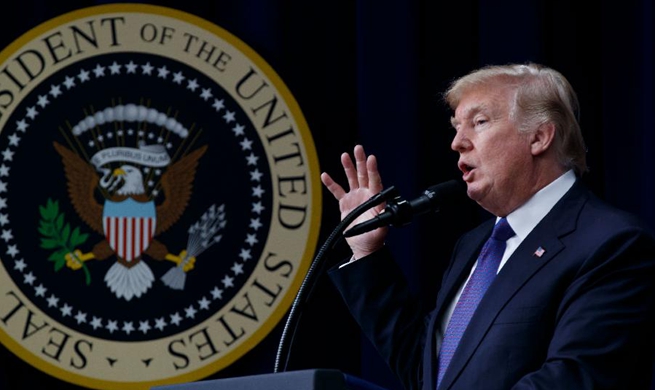BEIJING, Jan. 17 (Xinhua) -- Several Chinese doctors have raised doubts over whether an immuno stimulant called Pidotimod is as effective as manufacturers claim, saying the drug has been overused among children.
It is claimed that pidotimod boosts the immune response and reduces recurrent infection. Doctors said it can be often used in cases of acute infections.
Ji Lianmei, a pharmacist at United Family Healthcare, a private hospital in Beijing, was the first doctor to bring public attention to the drug. She published an article online questioning its efficacy.
Ji said she had searched databases such as PubMed and Cochrane for results and failed to discover reliable clinical research that could testify to its effectiveness and safety. The drug first appeared in Italy and has been used in a number of countries, including China.
She said sales of the drug were estimated to be 4 billion yuan (about 600 million U.S. dollars) a year, mostly prescribed to children by pediatricians.
Hicin Pharmaceutical Co. Ltd., one of the main producers of the drug, told Xinhua that the drug had been on the market for years and worked well for children suffering from repeated cold syndrome.
Another producer Jiangsu Wuzhong Pharmaceutical Group Corporation said the drug was approved by the China Food and Drug Administration (CFDA) and its efficacy had been confirmed in clinical studies.
According to the CFDA website, at least seven companies in China are licensed to produce the drug.
Hicin's prospectus said sales of the drug were 287 million yuan (about 43 million U.S. dollars) in 2015, more than double the figure in 2010. The company said the drup was its main immuno product.
Adjuvants such as Pidotimod are often dubbed wonder drugs as they are believed to work as an across-the-board panacea. Opposing doctors have said children's immune systems are developing, and they should not be overly-prescribed with such medicines. They also warn that overuse may lead to risks.
"Some clinical research did show the result after taking Pidotimod, but the level of evidence, number of samples and the research design are still not quite persuasive," said Wang Yuedan, deputy director of immunology school of Peking University Health Science Center. "Compared with other drugs, there lacks research showing how it functions at a micro-level."
Public doubts over wonder drugs have intensified after doctors questioned another overly-used drug, Shapuaisi, a type of eye drop. The CFDA has asked its manufacturer to conduct more clinical tests.
Doctors said there should be a channel for medical authorities to respond to expert and public opinions on medicine. They also said the public should have better knowledge on how to use medicine.
According to a health literacy test conducted by National Health and Family Planning Commission in 2016, only 12.76 percent of the population have basic medical literacy including knowing how to use the drug properly.
"We face an urgent task to help the public use medicine reasonably and safely," said Ding Yuansheng, deputy director of the School for Basic Medicine and Clinical Pharmacy, in Nanjing-based China Pharmaceutical University.
"Strict regulations are also needed to prevent medical workers to over-prescribe certain types of medicine," he said. Enditem





